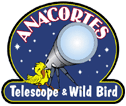Soon 1 Out of Every 15 Points of Light in the Sky Will Be a Satellite

In the not too distant future, it is expected that 65,000 satellites will be in Low Earth Orbit if the plans filed by four mega-constellation internet companies [SpaceX Starlink and Amazon Kuiper (United States), OneWeb (United Kingdom), and StarNet/GW (China)] are implemented. Currently, satellites placed in Low Earth Orbit, are almost completely unregulated – It’s like the wild, wild, west. New simulations show that from everywhere in the world, in every season, there will be dozens to hundreds of satellites visible for at least an hour before sunrise and after sunset. Right now, it’s relatively easy to escape urban light pollution by travelling to rural areas with dark skies. But these simulations show that in the future you won’t be able to escape this new satellite light pollution anywhere on Earth…Not even at the North Pole.
Comments:
Funding Member
Sponsors
- ASTROPHOTOGRAPHY BY MARTIN PUGH
- GetLeadsFast, LLC
- Anacortes Telescope
- Rouz Astro
- AstroMart LLC
- ADM
- APM-Telescopes
- Matsumoto Company
- jp Astrocraft, LLC
- T.E.C
- Denkmeier Optical
- OMI OPTICS USA LLC
- FocusKnobs
- Pier-Tech Inc.
- Astromart Customer Service
- Desert Sky Astro Products
- SellTelescopes.com
View all sponsors



There are no mitigating factors; painting them black just leaves dark trails instead of light ones. you can't stack them away or take images in between runs, etc.. when there are 30 or 40,000 sats in orbit.
The only thing you can do is to try to stop it from happening, with strong grass-roots political. Start writing letters to politicians, papers. Call out Elon Musk as the egotistical bastard that he has become.
What will you say to your children anrf grandchildren when they ask why you let it happen?
From the professional perspective, not only does it negatively impact widefield imaging and although the streaks caused by the satellites can be removed by software (which amateurs use to have pretty pictures) once the streaks are removed the scientific data is lost with removal of the pixels. The satellites also significantly impair radio astronomy, an important point overlooked entirely in the article.
Professional astronomers have approached the UN in regards to regulating these satellites from various countries across the globe: https://www.space.com/astronomers-night-sky-protection-starlink-megaconstellations
Additionally, mitigation effort continue from both starlink and amazon: ""The team is also committed to working with astronomers and others in the industry to reduce the visibility of Kuiper System satellites. We’ve joined several conferences to engage directly with organizations like the National Science Foundation and the American Astronomical Society and are applying learnings from those discussions to our prototype plans."
https://www.aboutama...type-satellites
It would have been nice if the author of the article in the Astromart would have done a literature search first before writing it. I have to question if the simulation takes mitigation efforts into account that are either occurring now or are being proposed for future launches...
There is still some small chance that an international groundswell of public opinion, carefully managed and orchestrated by NGO professionals not scientists, might derail some of this disaster, but it is a dim hope as long as the term "Star-Gazers" is used - a term that immediately devalues any further discussion.
The problem is that the clock is ticking without any effective opposition, and proponents know it. Unlike many other environmental disasters, this one may be impossible to mitigate after the fact.
That's it for me, folks. I am going to go gaze at my navel, err . star ..
https://skyandtelescope.org/astronomy-news/starlink-satellites-dont-impact-science-yet/
Meanwhile, additional efforts to mitigate the effects of these satellites continue and simply throwing up one's hands and saying all is lost, particularly based upon one simulation, is in my opinion, self defeating...
But, as noted in the link, "The International Astronomical Union is establishing a Centre for Protection of the Dark and Quiet Sky from Satellite Constellation Interference." So, at least there will be a more coordinated effort to mitigate the effects of these satellites.
I observe the night sky several times a night naked eye, plus binoculars or telescopes. Over the last three weeks, I kept a loose count of satellites that crossed the constellation I was observing or passed by the object I was viewing with a telescope.
The results were shocking, I saw a satellite each time I looked up. Sometimes right away, or appearing within a minute of looking up. If I went out to look right now, I'd see at least one. Three is a more likely number. Not long ago, it was a bit special to see one. For instance, keeping track of Tiangong One for a year right up to it's demise.
I purchased two vintage telescopes recently and have been practicing with both. I have had a satellite pass very close to the star I was observing 3 times in 3 different sessions, and I was looking at random stars.
I have recently seen satellites crossing paths with another and I have never seen that before. My skies are dark, I'm outside a lot observing as I watch for space junk to disintegrate as well as other celestial objects or events.
I'm afraid the dog is already out the gate on this matter. I can not even imagine the effort or cost a regulating commission would require, not to mention how a regulation of space would even be approached. We can't regulate fishing of this world's oceans, how can we tackle space? I do support the effort and maybe we will find a solution but it better be soon.